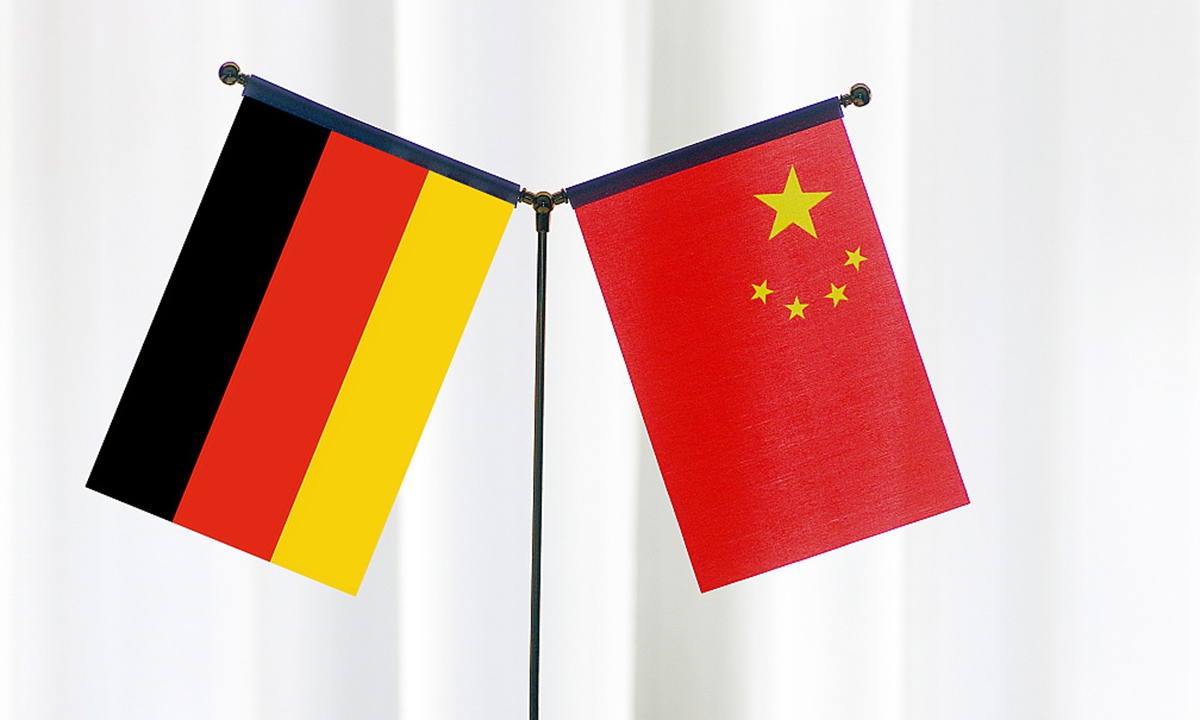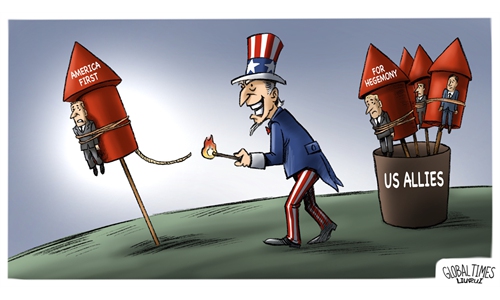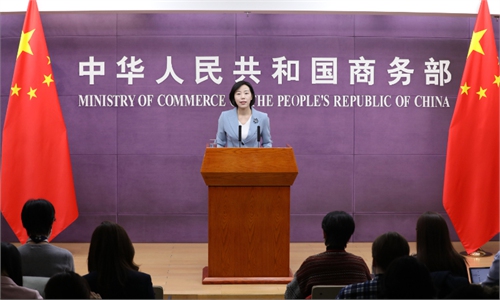
Photo:VCG
If an investment project that has already been approved by the German government can be repeatedly blocked for political reasons, many would see that as proof indicating the investment atmosphere in the country is worrying, which has adverse effect on Germany's economic recovery.A spokesperson for the German economy ministry said on Wednesday that Germany is reviewing its decision to allow China's Cosco to take a stake in one of logistics company HHLA's three terminals at Hamburg port, according to Reuters.
The development has thrown the high-profile investment deal into uncertainty, underscoring the recent political swing surrounding Germany's economic and trade policies toward China. Additional reviews for a foreign investment project usually don't bode well for its approval, especially at a time when some German politicians openly canvassed how to reduce economic dependence on China.
According to media reports, the reason why Cosco's investment in HHLA has again bogged down by a potentially lengthy review is because the Tollerort terminal in question was classified by Germany's Federal Office for Information Security as critical infrastructure this year, meaning that Berlin has to reassess the deal.
Cosco originally planned a 35 percent stake in the terminal, but after the deal triggered widespread discussions in the federal government, the cabinet in October last year approved a 24.9 percent stake investment by Cosco, which doesn't give Cosco any say in management or strategic decisions.
It should be pointed out that whether Cosco's investment in the Hamburg terminal can be approved by German government is not only important for the future development of the Hamburg port, but also has great symbolic significance for China-Germany economic and trade cooperation. China remained Germany's most important trading partner for the seventh year in a row in 2022. Chinese exports to Germany in 2022 increased by 33.6 percent year-on-year to 191.1 billion euros ($204.4 billion), while German exports to China rose by 3.1 percent to 106.8 billion euros, according to Germany's Federal Statistical Office.
Over the past year, due to the impact of the global pandemic and the Russia-Ukraine conflict, the German economy has been facing troubles which include energy shortages, high inflation, risk of deindustrialization, and weakened growth momentum. Even so, there are still some politicians who, ignoring the fact that China-Germany economic and trade relations usually don't involve "values" and geopolitical interests, like to wear tinted glasses and extend the concept of so-called security to the economic sphere.
In the meantime, however, there are also growing calls in Germany for deepening cooperation with China and rejecting "decoupling."
It seems that Germany's economic and trade policy toward China is caught in a dilemma. On the one hand, the federal government recognizes that China is an important trading partner and a huge market that it cannot afford to lose, but on the other hand, some politicians believe there is need to reduce economic dependence on China by hampering further cooperation. That could make the impression that China is either friend or foe to Germany.
When it comes to its China policy, Germany seems to be trapped in an either-or situation, which actually distorts the space for bilateral cooperation, creating more risks for the German economy.
But the question is whether it is necessary for Germany to raise normal economic cooperation to the level of taking sides? Does it really have to choose between following the US "decoupling" push from China and becoming an ally with China?
In fact, there is still a third option, pragmatism. The fact that China is not an ally of Germany doesn't mean that China is an enemy of Germany. China-Germany economic relations still have the potential for deepening development, and the momentum should be valued, not wasted.



